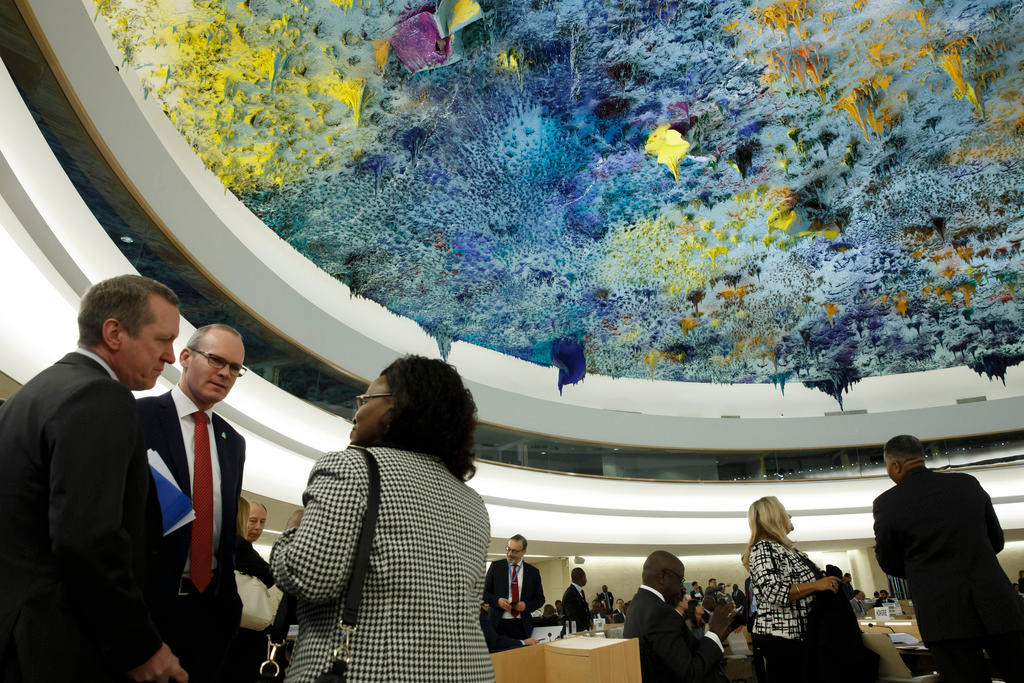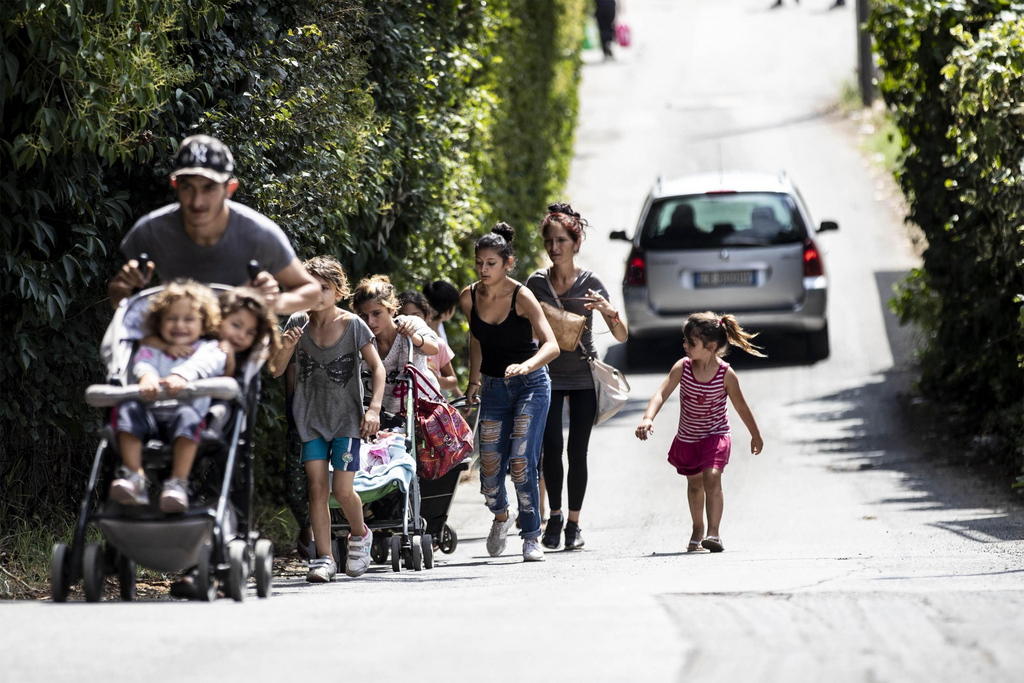UN Human Rights Council: an answer to burning injustice?

It’s that time of year again, the United Nations Human Rights Council is in full swing, government ministers, diplomats, and human rights activists are thronging the Palais des Nations in Geneva, focused on either drawing attention to burning injustices, or defending themselves from accusations that they cause them.
It is, every year, harder to pick out, from so many hundreds of topics, what exactly to cover. The council session lasts four weeks, there are country-specific reports from UN special rapporteurs, there are issue-based debates on children in armed conflict, on the rights of people with disabilities, on freedom of religious expression, and much, much more.
Of course, news editors are keen to link the council business to stories already on the news agenda; so, this year any mention of Venezuela will get noticed, and, in the wake of the horrific killing of Jamal Khashoggi, Saudi Arabia is getting rather more scrutiny than it might welcome.
Forgotten causes
How hard it must be, I often think, for some of the groups making the pilgrimage to Geneva, to find that their genuinely important situation is just one among hundreds, to find that, if they are lucky, their issue will get a two minute “expression of concern” in the council chamber, and perhaps 20 people will come to the side event they have spent months organising.
And yet year after year people make the journey to Geneva. Because if oppression, discrimination, subjugation, and all the other abuses humans continue to inflict on one another can’t be discussed here, where can they be?
This year, for the second year running, journalists from the BBC Persian service have come to Geneva. They hope to draw attention to alleged harassment, by the Iranian regime, of journalists’ families.
Rana is among them: she is London-based, but her parents are still in Iran. At a presentation in Geneva, she described how her parents’ passports had been confiscated, and travel bans imposed on them, just when they were planning to visit Britain to see their newborn grandchild.
Her colleagues and their families have experienced similar treatment: threats that jobs or pensions could be lost if parents did not encourage their children to give up their careers in journalism, spurious investigations on ‘charges of conspiracy against national security’: a handy excuse for freezing financial assets.
Shrinking space
Rana and her colleagues may be a small group, numerically. But their experience of harassment and intimidation is one that is increasingly shared by journalists in many countries. The UN’s special rapporteur on Iran, Javaid Rehman, was by no means the only one who expressed concern about the shrinking space for journalists. From Turkey, to Egypt, to the United States, journalists are finding that simply doing their job has become increasingly dangerous.
And so, Jeremy Dear, Deputy General Secretary of the International Federation of Journalists, and former General Secretary of the National Union of Journalists, was also in Geneva. He came primarily to support the BBC Persian staff, but believes the opportunity offered by attending the human rights council is a positive one for any and all facing injustice and persecution.
“This gives us the best opportunity to highlight what is going on and to speak directly to those who represent their country at the UN,” he explains.
Having both the state allegedly responsible for the persecution, and other states who might have influence with them, all in the same UN building at the same time is, Dear suggests, a unique chance, not to get an immediate solution, but to start the process towards one.
“One meeting will not change everything, it’s part of a wider process, part of the campaign…it is an opportunity to build alliances, to speak directly to representatives of the Iranian government, but also to ask other governments to raise the issue in bilateral talks with Iran.”
Untouchable?
There are some modest signs that that one campaign to get the Iranian authorities to lighten up on journalists’ families may have had some effect. If so, it is proof that the council is not always about a very public ‘naming and shaming’, although of course that does happen too from time to time.
In fact, many of the council’s successes come from years of perseverance, from quiet diplomacy, from meticulous research of what has happened, to whom, and when.
Even countries traditionally viewed as so mighty, or as having so many powerful friends, that they are simply ‘untouchable’ by the council, are not immune.
Three examples, Phil Lynch, Director of the International Service for Human Rights, suggests, are Russia, China, and Saudi Arabia. In all three countries, and in many others, he says, “democratic institutions are being undermined, and human rights defenders and victims of violations are increasingly turning to the council to seek accountability… for many the council is their place of last resort.”
And despite the power, or their powerful friends, the council is trying to live up to expectations. As Lynch says, China and Russia have all received some critical attention in the last three years.
Saudi Arabia in the spotlight
This year, thanks to persistence by people like Lynch, it was Saudi Arabia’s turn. “I’ve lost count of the number of meetings I’ve had with governments over the last six years which concluded that the Kingdom was too politically, economically and strategically important to be sanctioned,” he said.
Thirty-six countries, including all 28 members of the European Union, united to publicly condemn Saudi Arabia for its repression of lawyers, human rights defenders and journalists, to demand that Saudi women activists be immediately released, and to tell Riyadh to cooperate unconditionally with an international investigation into Khashoggi’s killing.
They were led by tiny Iceland, whose ambassador worked tirelessly behind the scenes to get the support of other member states (and failed, much to the disappointment of Swiss human rights groups, to get Switzerland on board). Some Saudi women activists managed to get to Geneva too, and gave moving testimony.
So, for those far away, watching the human rights council and wondering if it can help, here are what Phil Lynch and the ISHR said about the council, and what that statement on Saudi Arabia showed us.
“Committed individuals and coalitions, prepared to put principle above political expediency, can successfully challenge authoritarianism and prejudice. And we will ultimately prevail. Success may not come immediately. There will be challenges and setbacks. But progress is achieved, and history is made by those who value justice, equality and freedom over discrimination, fear and oppression,” he said.

In compliance with the JTI standards
More: SWI swissinfo.ch certified by the Journalism Trust Initiative

















You can find an overview of ongoing debates with our journalists here . Please join us!
If you want to start a conversation about a topic raised in this article or want to report factual errors, email us at english@swissinfo.ch.